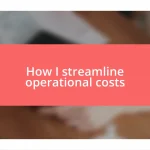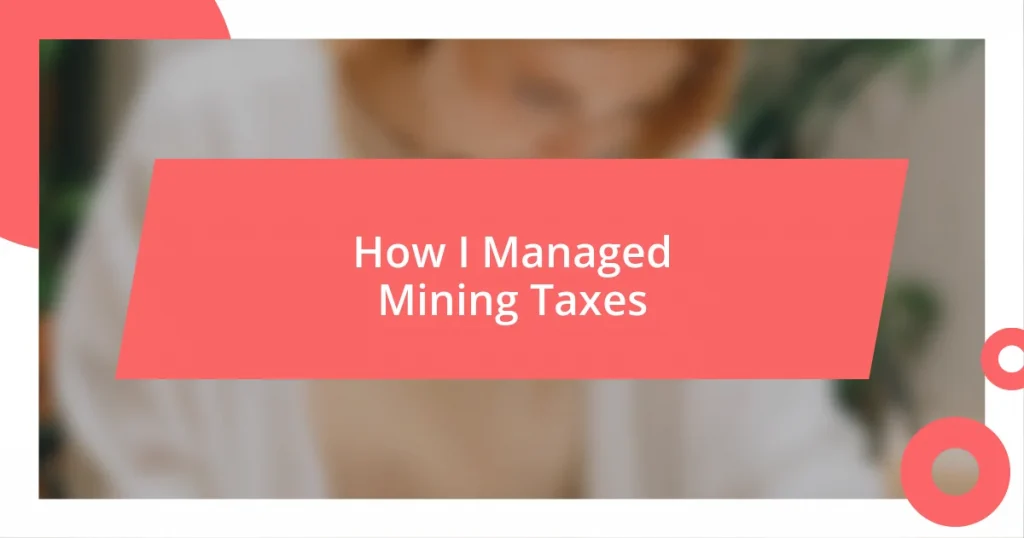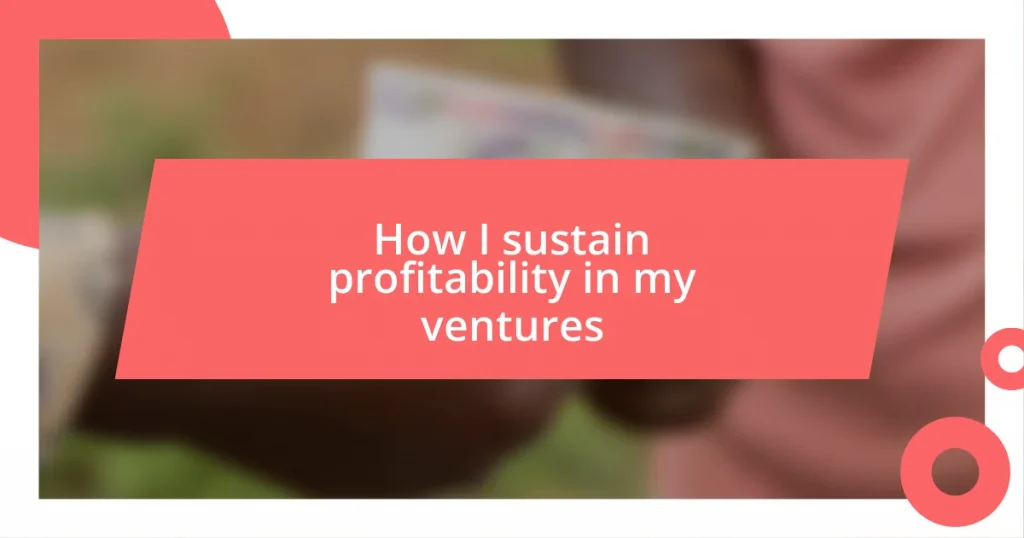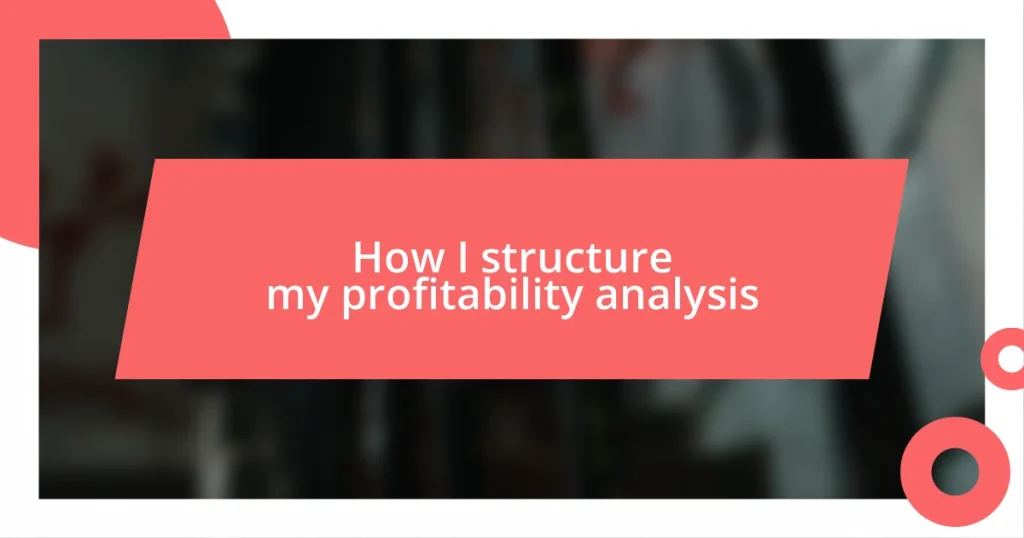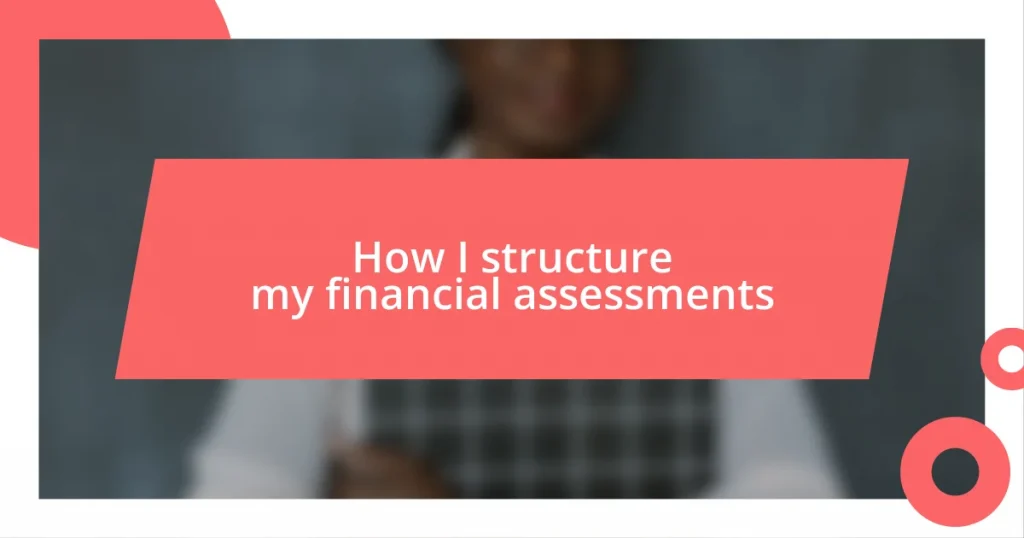Key takeaways:
- Understanding various mining taxes, such as royalties, income taxes, and environmental taxes, is essential for compliance and optimizing financial outcomes.
- Implementing systematic tracking of income and deductible expenses can significantly reduce tax burdens and enhance financial clarity.
- Engaging professional tax assistance provides invaluable guidance and support, transforming tax management from a stressful task into a proactive financial strategy.
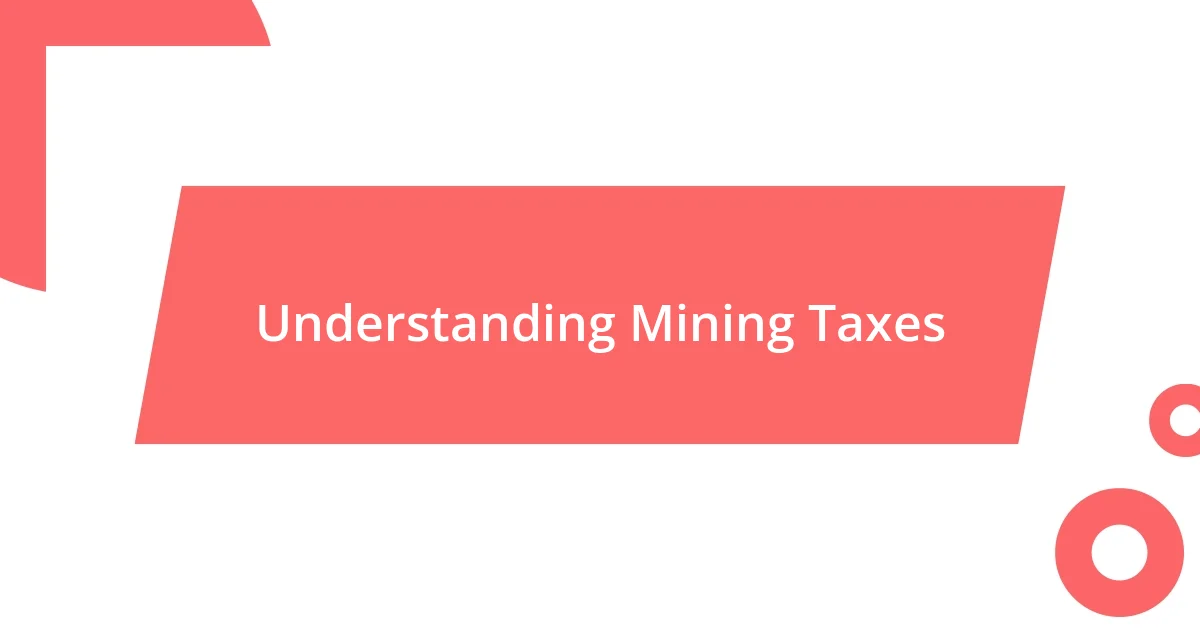
Understanding Mining Taxes
Mining taxes can be quite complex, and I learned that firsthand during my early days in the industry. I remember feeling overwhelmed by the sheer amount of regulations and requirements I had to navigate. It made me question, how could I possibly keep track of everything and still focus on my mining operations?
Understanding the different types of taxes, such as royalties and income taxes, is crucial for anyone involved in mining. Each jurisdiction has its own rules, and missing a detail can lead to costly mistakes. When I first encountered this, I thought, “What a labyrinth!” The realization that tax obligations vary significantly based on location and even the specific minerals being extracted made me appreciate the importance of thorough research and professional guidance.
Navigating mining taxes isn’t just about avoiding penalties; it can also impact your bottom line. I still recall a time when I discovered tax credits that I was eligible for, and the feeling of relief was immense. It made me think, what opportunities might I have overlooked? This journey underscores the value of staying informed and proactive in managing tax responsibilities in the mining sector.
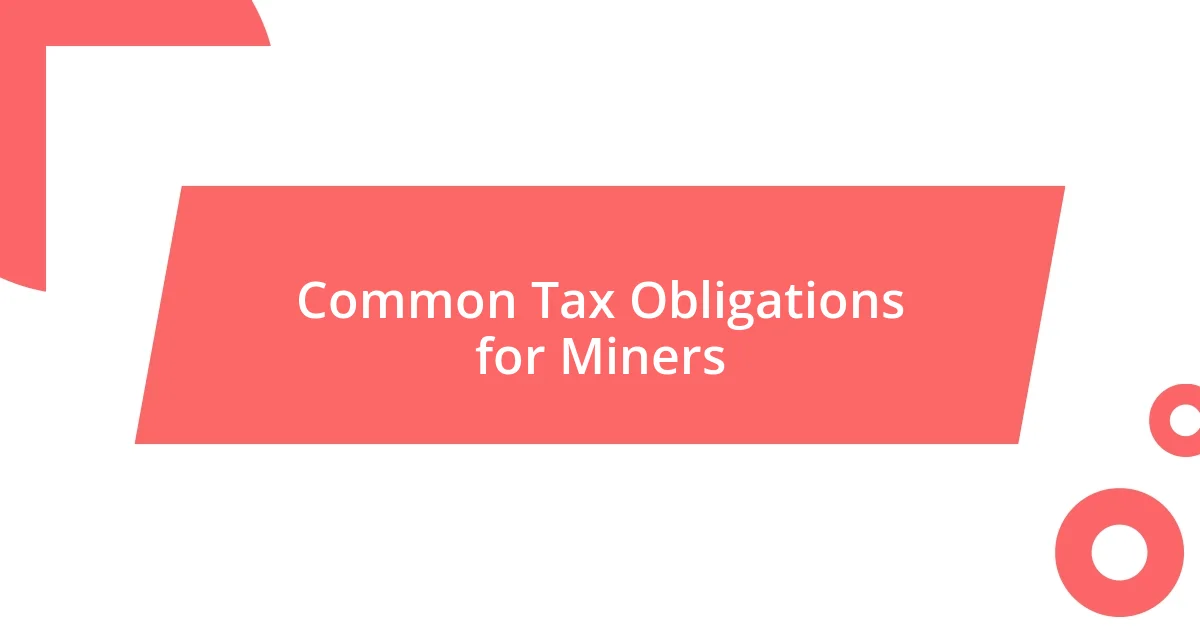
Common Tax Obligations for Miners
Mining operations come with a host of tax obligations that can feel overwhelming. From my experience, royalties are a significant part of the tax structure. They are usually paid to the government or landowners for extracting minerals, and I remember the first time I had to calculate them; it was daunting. I found myself constantly checking calculations to ensure I wasn’t underreporting, which could have led to severe penalties.
Income taxes are another layer that miners must navigate. At one point in my mining journey, I made the mistake of treating my operations like a simple business without considering the specific deductions available for mining activities. I wish I had known sooner that expenses related to labor, machinery, and even certain operational costs could be deducted, significantly reducing my taxable income. It was a learning curve that taught me to dig deeper—pun intended!
Finally, environmental taxes can catch many off guard. As I started focusing on sustainable practices, I realized these obligations weren’t just legal requirements; they impacted my operational costs. I even faced a situation where compliance led to higher initial expenses but, ultimately, reduced long-term liabilities. It’s vital for miners to be aware of such obligations to maintain sustainability and profitability.
| Tax Type | Description |
|---|---|
| Royalties | Payments made to governments or landowners for mineral extraction. |
| Income Taxes | Tax on profits from mining operations, allowing for specific deductions. |
| Environmental Taxes | Costs associated with sustainable practices and environmental compliance. |
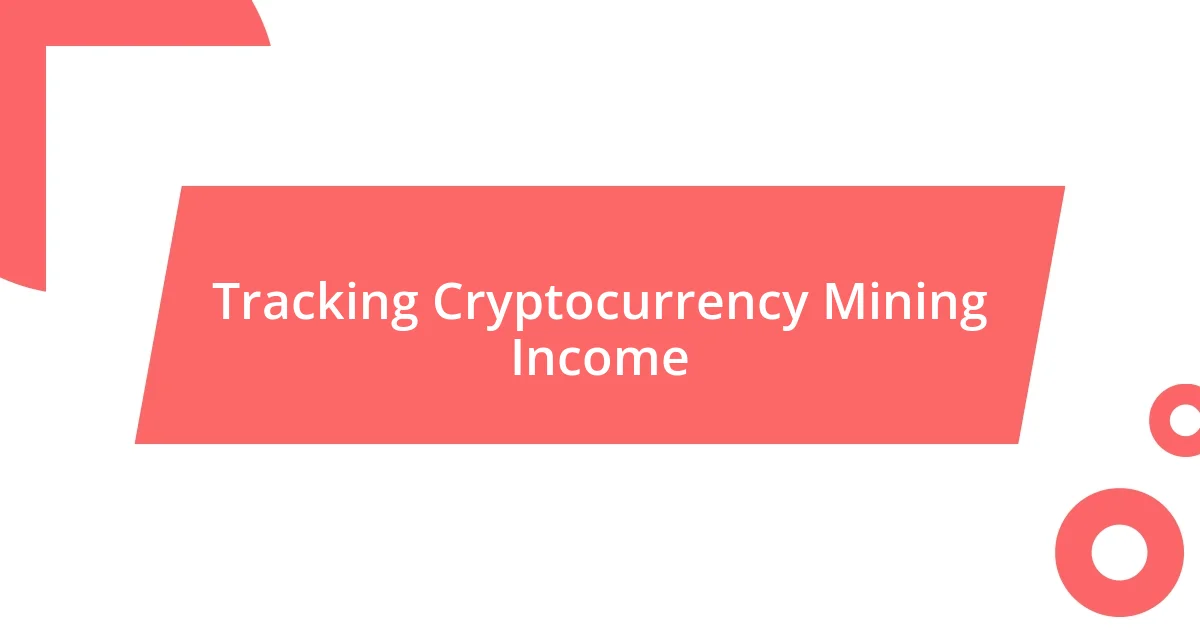
Tracking Cryptocurrency Mining Income
Tracking cryptocurrency mining income can be a bit of a juggling act. I learned early on that having a systematic approach is crucial for keeping accurate records. For instance, I started using a dedicated spreadsheet to log my earnings daily, which turned out to be a game changer. I couldn’t believe how much easier it was to manage my finances once I had everything organized in one place.
Here’s a quick list of what I tracked to help me stay on top of my mining income:
- Daily Earnings: Logging the amount mined each day helped me anticipate monthly totals.
- Market Value Fluctuations: I noted the price of cryptocurrency regularly to understand the potential value of my mined coins.
- Transaction Costs: Tracking fees associated with transferring my mined coins enabled me to calculate net income accurately.
By being diligent about tracking these elements, I not only simplified my reporting but gained a clearer picture of my financial landscape, which significantly eased my stress during tax season.
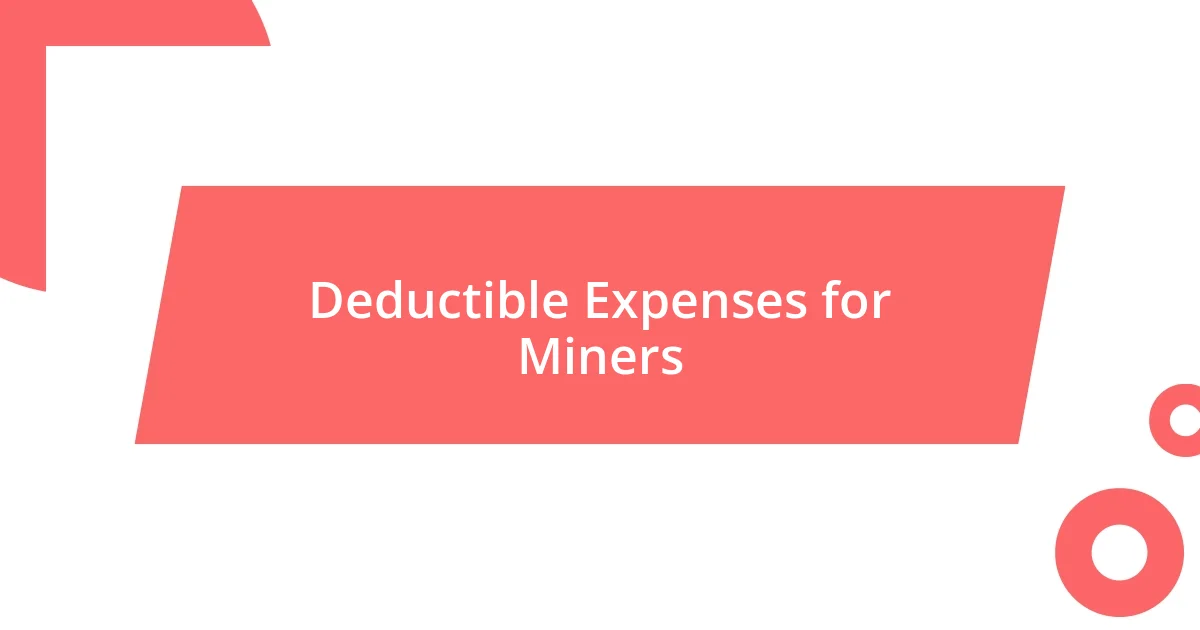
Deductible Expenses for Miners
Deductible expenses for miners can make a significant impact on your bottom line, and trust me, I’ve felt the weight of those savings firsthand. For instance, when I finally started to recognize that costs like fuel, maintenance for machinery, and even office supplies could be deducted, it felt like I had hit a hidden jackpot. Who wouldn’t feel a rush knowing that tracking small expenses could lead to substantial tax reductions?
Another area that often flies under the radar is the cost of safety equipment and training. I vividly recall some late nights spent researching OSHA requirements while trying to figure out what I could claim. Those safety glasses, hard hats, and the training sessions for my crew? They weren’t just expenses; they were deductible! This realization not only eased my financial burden but also reinforced my commitment to ensuring everyone stayed safe on-site.
I also can’t stress enough the importance of documenting every little expense. I remember going through old receipts one afternoon and discovering a few charges for tools that I initially overlooked. It’s astonishing how quickly those small amounts add up! So, if you’re straying from keeping tabs on your expenses, I’d suggest you rethink that habit. What if those overlooked details were the key to a smoother tax season for you? Keeping meticulous records not only saves you money but also helps maintain clarity in your financial journey.
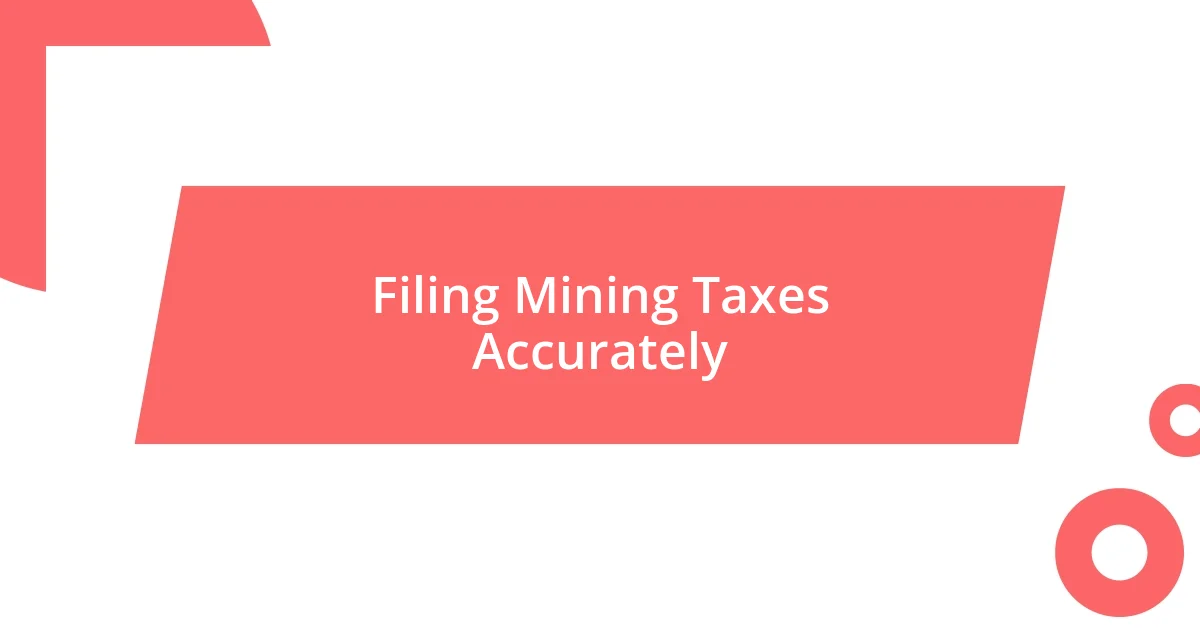
Filing Mining Taxes Accurately
Filing my mining taxes accurately was a real eye-opener for me. I initially underestimated the importance of precise reporting, thinking I could just approximate my earnings. However, the first time I received a notice from the IRS pointing out discrepancies, I felt a wave of panic wash over me. It was then I realized that attention to detail was not just beneficial—it was essential.
I made it a habit to revisit my records and double-check my reported income against my transaction logs. On one occasion, while organizing my files, I stumbled upon some old mining reports I had neglected. It was almost like discovering treasure in my own backyard! Those extra details contributed to a more accurate filing and, oddly enough, gave me a sense of relief knowing there weren’t any surprises waiting for me in the mail.
Engage with the process, I would say. I found that using software designed for financial tracking not only simplified filing but also made it feel like I was in control of my situation. Trust me, feeling that sense of mastery over my finances was a huge confidence boost! Have you ever considered investing in tools that tailor to your specific needs? They’ve made my filing process not just accurate but a lot less stressful as well.
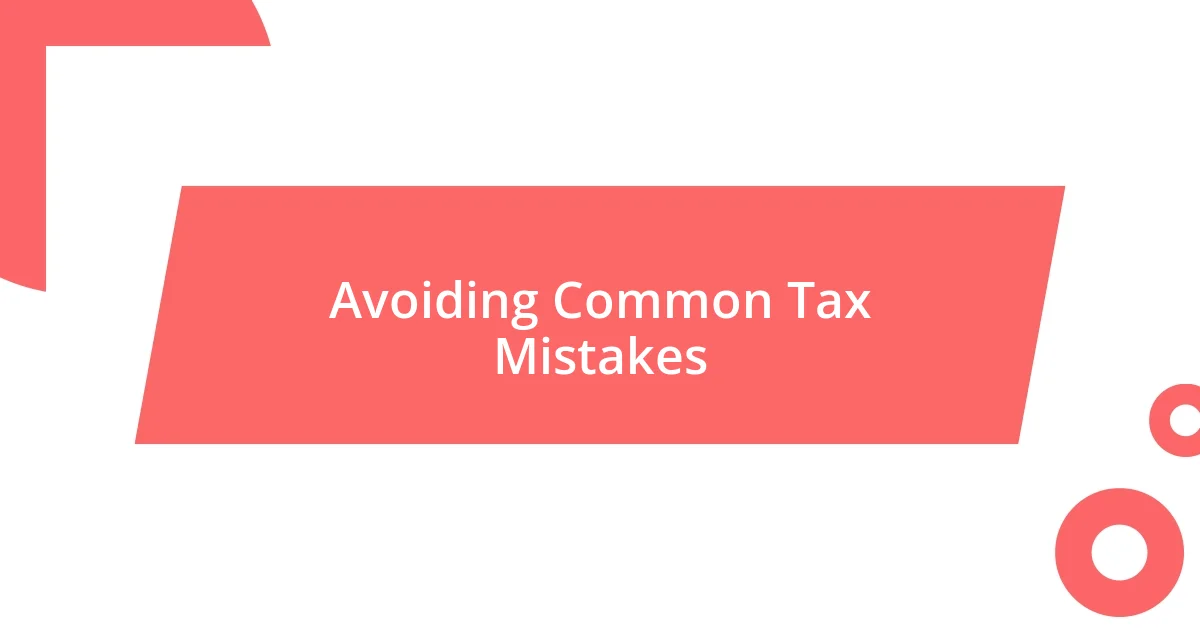
Avoiding Common Tax Mistakes
Avoiding common tax mistakes in mining can seem daunting, but with a little diligence, you can sidestep many pitfalls. In my early days, I neglected to keep my personal and business expenses separate, which led to a chaotic tax season. I remember sifting through a mountain of mixed receipts, wishing I had just had the foresight to designate one account for business expenses. Have you ever found yourself underwater with disorganized paperwork? Streamlining your finances from the start can save you so much time and stress in the long run.
One common issue I encountered was misunderstanding allowable deductions. I used to think that any cost related to mining would be deductible—wrong! It’s crucial to familiarize yourself with the specific regulations concerning what you can and cannot claim. I vividly recall the disappointment of having to drop my claims for certain purchases during a tax audit. It’s like losing a game you thought you had won! Taking the time to read up on the IRS guidelines specific to mining can safeguard you from a much bigger headache later on.
Lastly, I can’t emphasize enough the importance of consulting with a tax professional. Initially, I tried to handle everything myself, feeling confident in my skills. But, after one particular tax season left me feeling overwhelmed and confused, I reached out for help. The clarity that comes from professional guidance is invaluable. While you might think you could save a few bucks by tackling your taxes solo, it may just cost you more in the long run. Isn’t it worth investing a little in expert advice to ensure you’re always on the right path?
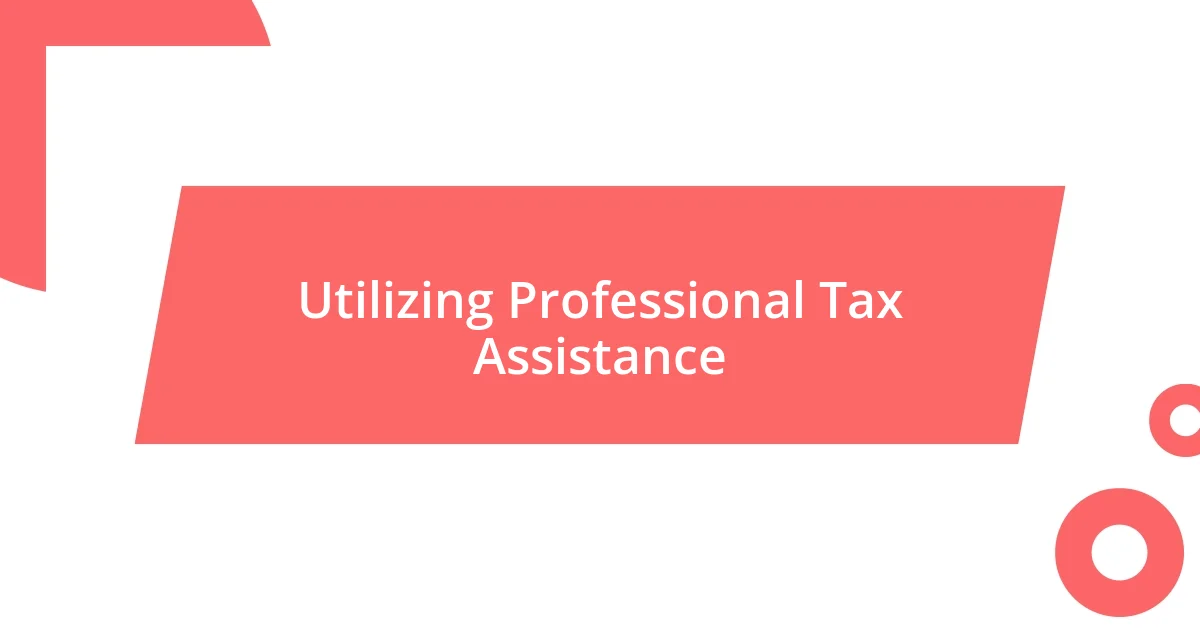
Utilizing Professional Tax Assistance
Utilizing professional tax assistance was truly a game-changer for me. There was a time when I thought I could navigate the complex world of mining taxes all on my own. After a particularly stressful season filled with sleepless nights and endless calculations, I finally decided to consult a tax professional. The relief I felt when they clarified the intricacies of the tax code felt like lifting a weight off my shoulders. Have you ever been on the brink of a breakdown only to discover that help was just a call away?
I vividly remember the first meeting with my tax advisor. Their thorough understanding of mining-related deductions and credits opened my eyes to opportunities I’d completely overlooked. It was as if I had been wandering in the dark and suddenly found a flashlight! I was amazed at how they took the time to explain everything, making it so much more manageable. The bottom line? Investing in professional assistance not only saved me money but also spared me a hefty amount of stress. When you consider the potential pitfalls of misfiling, isn’t it comforting to have an expert by your side?
Over the years, I’ve made it a practice to check in with a tax professional annually. This proactive approach has transformed my perception of taxes from a dreaded chore to an aspect of my business that I actually look forward to discussing. Collaborating with a knowledgeable advisor not only ensures compliance but empowers me to make informed decisions about my mining venture. Thinking about your own financial future, wouldn’t having expert insight give you peace of mind?




